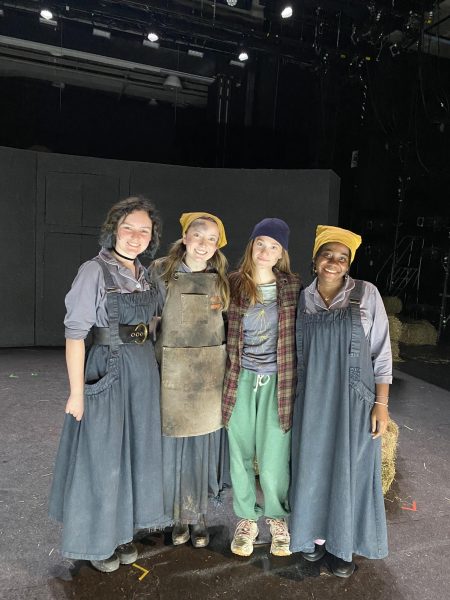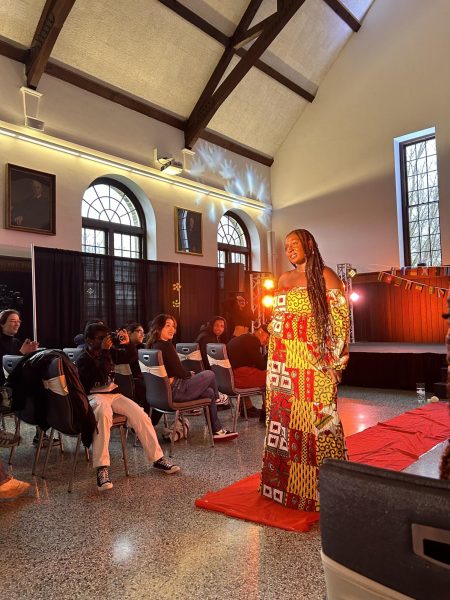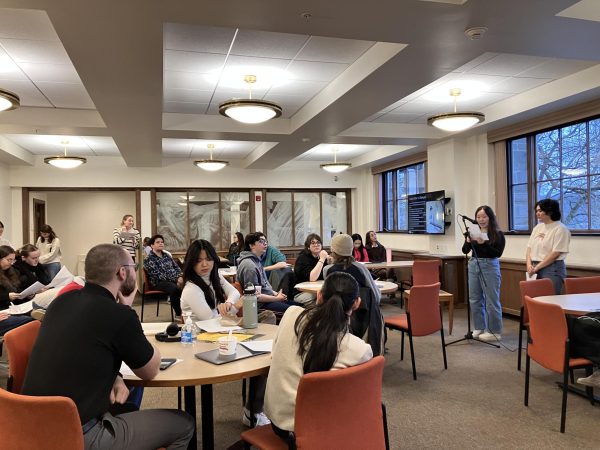Where the Art Is: Art for Refugees in Transition
What is A.R.T.? Perhaps the best way to understand Colgate’s newest philanthropic partnership – Art for Refugees in Transition – is to look again at another recent project on campus. Visiting artist Allan McCollum has spent these last few months meticulously developing a unique “shape” for each student and community member, and in so doing he has provided a unique visual map of our community.
For McCollum, every shape is different and, therefore, every community is different. In a similar way, Art for Refugees in Transition seeks to enrich cultural heritage within communitie – and wherever the project may be, A.R.T. is intrinsically linked to the specific refugee population within a given geography. Utica, NY is the most recent location for A.R.T., but this community-based arts initiative has expanded to six communities since its creation in 2003.
Seven years ago, A.R.T.’s Columbia graduate Sara Green established the first two Arts for Refugees in Transition sites in village towns of Thailand. Green had always envisioned the project as a way to address the cultural uprootedness and loss of identity that was a result of refugee relocation. When she visited one such refugee population in Kosovo in 2003, “She saw fear and hopelessness in the faces of children who had had their childhoods stolen away.” Since that time, Green worked to create a program that would forge a connection between the elders of a refugee community and the children, using dance, song and visual art to regenerate cultural heritage – that program is A.R.T. Today, A.R.T. has one location in Thailand, three in Columbia, and one in New Haven, CT. The newest project in Utica will follow the successful pattern of these previous sites to invigorate artistic culture from within the Burmese refugee community there.
Self-sufficiency is the single greatest goal of any A.R.T. program. Just one year after the program began in the Burmese community of Mae Hong Son Province, for instance, it was completely run by the refugees themselves. A.R.T. does not attempt to impose external cultural solutions or institutions but rather develop and strengthen the heritage that exists internally. In Mae Son Province, that heritage is dance. A.R.T. provided the funding for costumes and instruments to allow over 600 children to learn dancing rituals from Burmese elders. Each A.R.T. project, such as this one, is founded on three goals: cultural preservation, personal development and community building. Thus, A.R.T. addresses both the large-scale danger of cultural disappearance as well as the spirited well-being of individual community members.
A.R.T’s outreach to the Burmese population in Utica, NY will be a partnership between the Mohawk Valley Resource Center for Refugees (MVRCR) and Colgate University. MVRCR is a non-profit organization that began in 1979 to assist the growing number of refugees in Utica, and today they serve the over 10,000 refugees through education training, resettlement programs and employment. Colgate’s relationship with MVRC has strengthened in recent years – students from the University have begun tutoring refugee children at the center. Yet, what is missing from the outreach provided by MVRC is education about the indigenous culture.
Senior Becky Plesser explains why this new initiative is so important. “While it was fun to teach refugees how to make toast and do other ‘American’ things, A.R.T. is so important because it helps refugees maintain their cultures in their new homes,” she said.
Through the efforts of Upstate Institute’s director Professor Ellen Kraly and students such as Plesser and junior Stephanine Bohar, Colgate University will become an integral part of making A.R.T. an important and sustainable project in Utica. With over 2,000 Burmese refugees currently living in Utica, A.R.T. promises to be a true influence on the cultural landscape there. To learn more about A.R.T.’s international projects and how to become involved locally, attend the movie screening at 4:30 p.m. on Wednesday, April 14 in the Alana Cultural Center. International food will be served and a raffle will take place for a Burmese hand woven-basket. All students are encouraged to attend to learn more about the organization and how to participate in the future.






